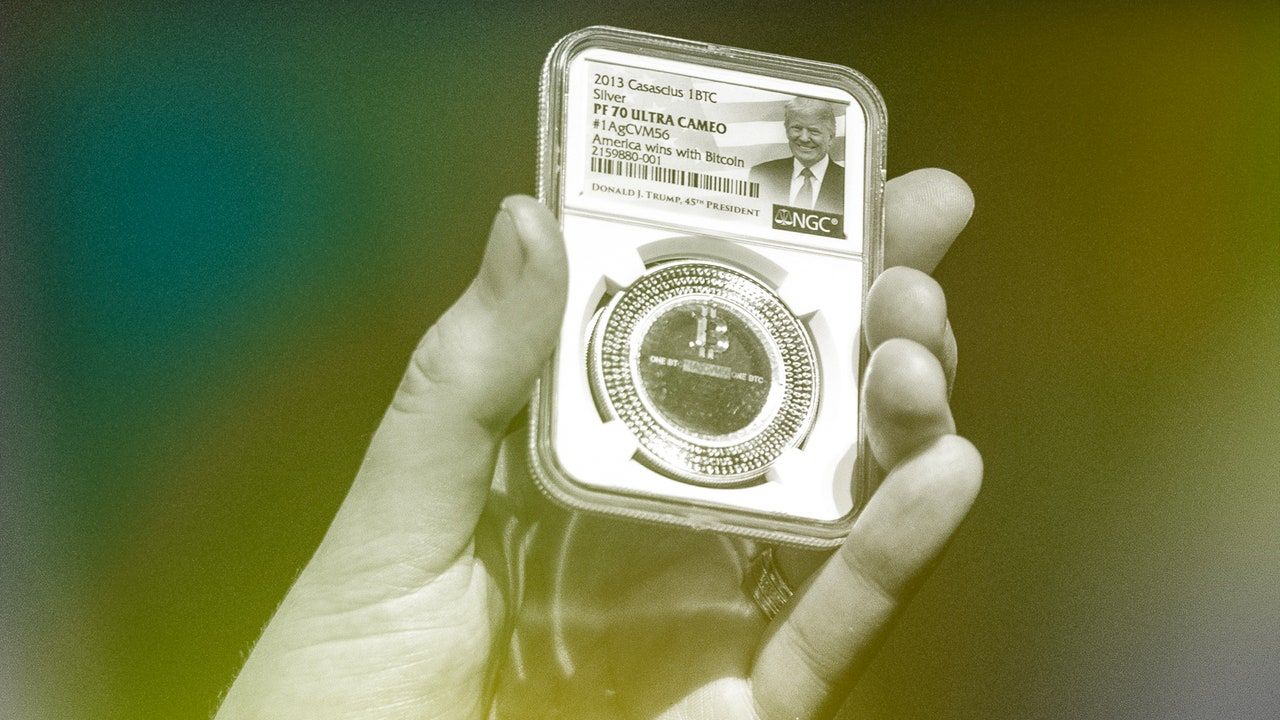Last week, as much of the world focussed on Iran and Israel, the crypto lobby was celebrating a huge victory in Washington. “History is being made,” Jeremy Allaire, the founder and chief executive of Circle, a stablecoin platform, wrote on X, shortly after the Senate voted through the GENIUS Act, a bill designed to facilitate the growth of the digital currency, and to give it, and other crypto assets, the stamp of legitimacy.
Stablecoins, which are designed to retain a constant value of one dollar, making them much less volatile than regular cryptocurrencies such as Bitcoin and Ethereum, currently exist in a regulatory gray area, in which regulators have treated some, but not all, of them as securities subject to the securities laws. Although companies such as Tether and Circle created stablecoins that now have a combined market cap of more than two hundred and fifty billion dollars worldwide, major banks and other traditional financial institutions largely stayed away from them, put off by regulatory uncertainty and crypto’s association with illicit transactions. The GENIUS Act (which stands for Guiding and Establishing National Innovation for U.S. Stablecoins Act) may well change all this and bring crypto into the mainstream financial system. It treats stablecoins as a means of payment rather than as securities, and it creates a set of rules for their issuer to follow, under the oversight of state and federal regulators.
The bill passed with support from fifty Republicans and eighteen Democrats. Allaire said that the final passage of the act, which still has to go through the House of Representatives, “will drive US economic and national competitiveness for decades to come.” The Republican senator Bill Hagerty, of Tennessee, who sponsored the bill, made similarly expansive claims. But to many public-interest groups, and to Senate Democrats who voted against the legislation, its progress through the Senate mainly illustrated the power of the crypto lobby, which now exercises enormous influence at both ends of Pennsylvania Avenue. “The GENIUS Act is an important step, but it is just one of many actions that the crypto industry and its allies in the White House and Capitol Hill are taking to launch an uncontrolled experiment in unleashing crypto on the economy and the financial system,” Mark Hays, an associate director of crypto and fintech at Americans for Financial Reform, a Washington-based advocacy group, told me.
During the Biden Administration, a number of crypto exchanges failed, and the creator of one of them, Sam Bankman-Fried, was convicted of eight counts of fraud and conspiracy. (He had illegally transferred customers’ deposits to his hedge fund.) Over at the Securities and Exchange Commission, Gary Gensler, the Biden-appointed chair, said at the time that the crypto industry was “rife with fraud and manipulation,” and his agency sued some of its most prominent firms, including Coinbase, the United States’ top crypto exchange, claiming that they were violating securities laws. Last year, a survey from the Pew Research Center found that more than sixty per cent of Americans had little or no faith in the safety of crypto as an investment.
But, also in 2024, three super PACs financed by the crypto industry spent an estimated two hundred and sixty-five million dollars to elect pro-crypto candidates and defeat crypto skeptics, such as Sherrod Brown, the senior Democratic senator from Ohio. With last week’s vote, the crypto lobby “recouped some of its huge investment,” Bartlett Naylor, a financial-policy analyst at the consumer-advocacy group Public Citizen, told me. “The crypto sector’s financial contributions converted some elected politicians to a pro-crypto stance, and it scared the bejeezus out of a lot of others,” he added.
Defenders of the GENIUS Act say that it will protect holders of stablecoins by requiring their issuers to adhere to a set of codified rules, which include keeping the holders’ money in safe reserve assets, such as Treasury bills and bank accounts; publishing the composition of these reserves on a monthly basis; and, in the case of issuers with a market capitalization of more than fifty billion dollars, publishing audited financial statements annually. The bill also stipulates that stablecoin issuers must observe some money-laundering laws, and that, if they enter bankruptcy, the holders of their stablecoins will have first claim on their assets. “The Genius bill will ensure stablecoin reserves will be safe and boring, and that consumers will have a direct legal claim on the underlying assets,” Christian Catalini, a research scientist at M.I.T.’s Sloan School of Management, who set up the university’s Cryptoeconomics Lab, wrote to me in an e-mail.
Critics of the bill say that its protections don’t go nearly far enough. “It’s a collection of half measures that will create a regulatory imprimatur for stablecoins without removing the dangers associated with them,” Hays said. “We see in this bill a failure to learn from the regulatory mistakes of the past.” He compared it to the Commodity Futures Modernization Act of 2000, which ostensibly set up a new regulatory framework for derivatives but actually weakened oversight in key areas—a failure that became patent during the global financial crisis of 2007-09. “We’ve seen this show before,” Hays added.
The Senate legislation contains a conflict-of-interest provision that would “prohibit any member of Congress or senior executive branch official from issuing a payment stablecoin product during their time in public service.” However, legal experts say this restriction, like other ethics laws, wouldn’t apply to the President or Vice-President, an exemption that is far from trivial. In March, World Liberty Financial, a crypto startup that is majority-owned by the Trump family, announced that it was issuing a new stablecoin, USD1. Since the Trump family is now a player in stablecoins, it potentially stands to benefit greatly from an expansion in their use. (The market cap of USD1 already stands at about $2.2 billion.) “If this bill passes the full Congress, it is certainly possible that Trump’s stablecoin could become one of the dominant parts of the crypto ecosystem, which would be extremely rewarding to him,” Hays said.
The Trump family’s efforts to enrich itself by issuing a “$Trump” meme coin have already received a great deal of attention. (Earlier this month, the Forbes reporter Dan Alexander estimated that Trump’s meme-coin haul could be worth more than three hundred million dollars.) Critics say that the existence of a Trump-owned stablecoin creates new possibilities for interested parties to funnel money to him and his companies. Early last month, one of World Liberty Financial’s co-founders said that its new stablecoin would be used in a two-billion-dollar investment that an entity tied to the government of the United Arab Emirates was making in Binance, the world’s top crypto exchange. The company’s founder, the Chinese billionaire Changpeng Zhao, was sentenced in the U.S. to four months in prison last April, after pleading guilty to money-laundering violations, and he is now reportedly seeking a Presidential pardon. At the end of May this year, the S.E.C. announced that it was dismissing a civil suit against Binance.










